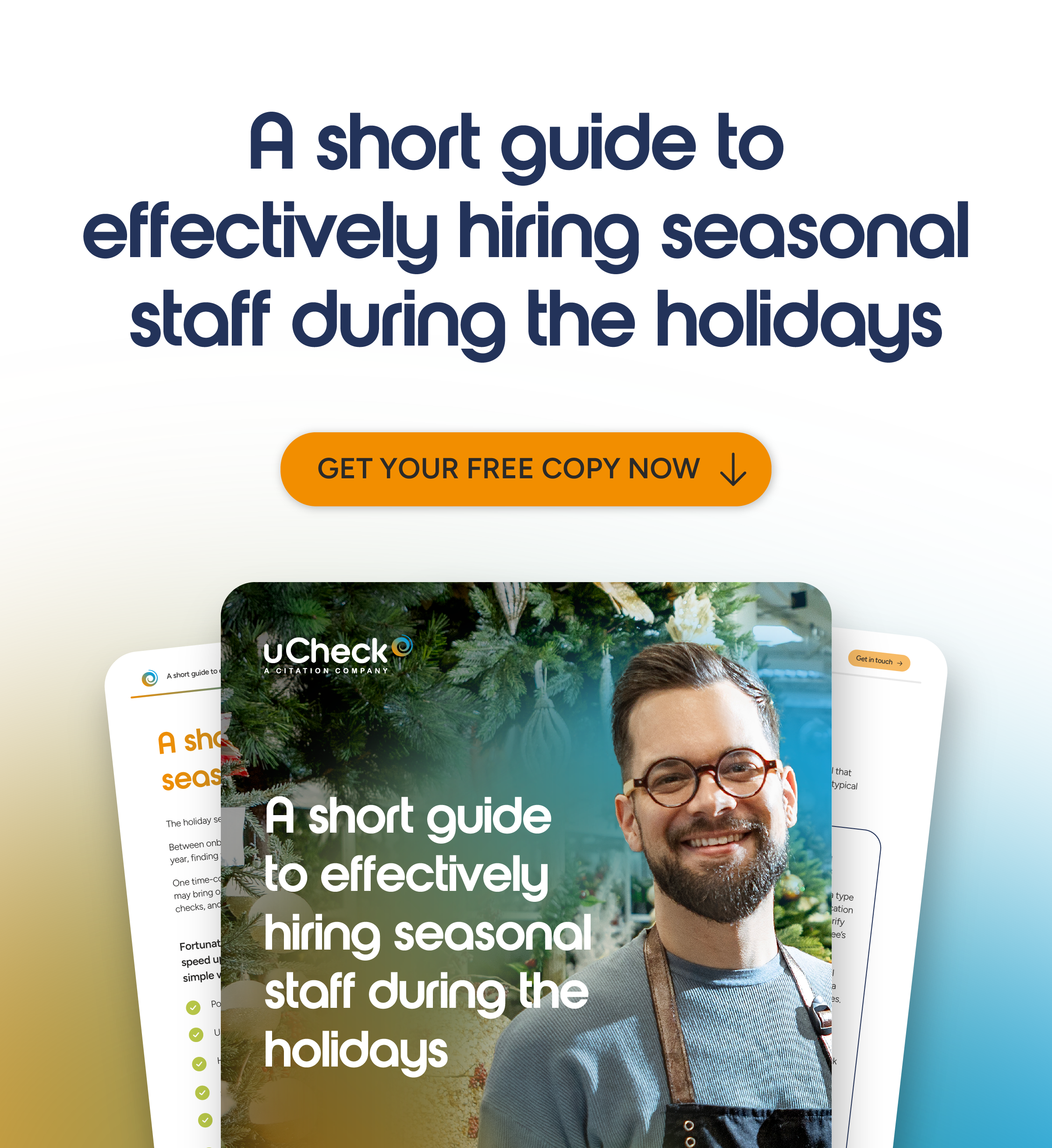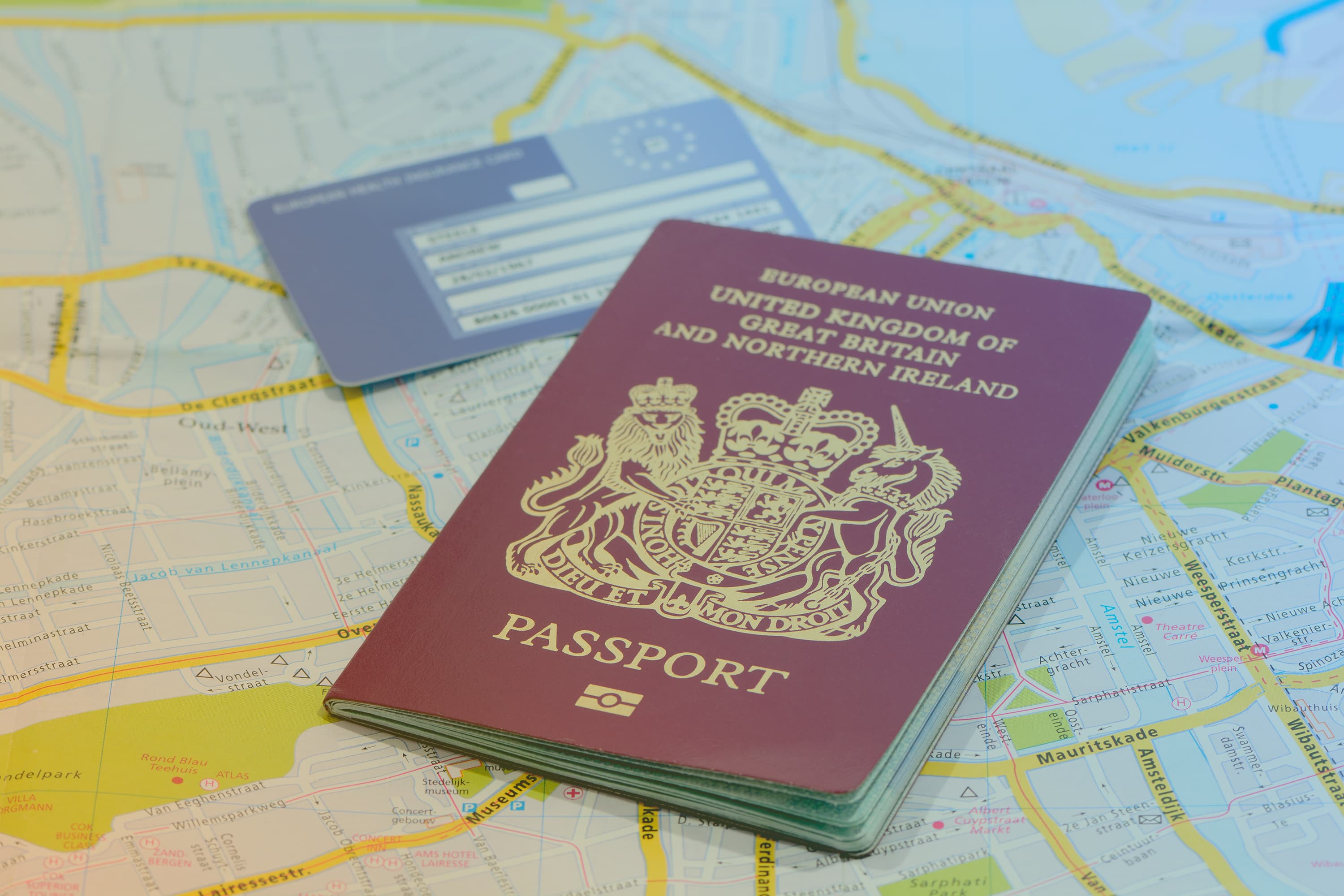You can’t technically “fail” a DBS check. But plenty of employers find themselves stuck when something unexpected shows up. An old conviction. A caution from years ago. Or something more serious that’s never been mentioned.
And then the panic sets in.
What are you legally allowed to do?
Can you still hire them?
Will this decision come back to bite you?
You’re not alone in asking. Searches like “can you fail a DBS check”, “what happens if you fail a DBS check”, and “DBS check fail” add up to hundreds of Google queries every month, showing just how much confusion still surrounds this topic.
A DBS check (Disclosure and Barring Service check) doesn’t give you a green or red light. It shares relevant information about someone’s criminal record (if any), so you can make an informed, fair decision.
So, let’s set the record straight and help you make the best hiring decisions possible.
What does a “failed” DBS check actually mean?
You need to remember, DBS checks don’t come with a red fail or green pass stamp. Someone either has convictions, cautions, or barred status, or they don’t. The check doesn’t judge or recommend. It gives you information to assess whether the candidate is suitable for the role.
That information depends on the type of DBS check you’ve requested:
- Basic DBS check – shows any unspent criminal convictions or conditional cautions
- Standard DBS check – includes spent and unspent convictions, cautions, reprimands, and warnings
- Enhanced DBS check – everything in a standard check, plus any relevant information held by local police
- Enhanced with barred list – includes all the above, plus checks against the adult or child barred lists
Let’s say something shows up like a previous conviction, it doesn’t automatically disqualify someone. You need to weigh up whether that information is relevant to the role, the risks involved, and your internal policies.
If you want more information on hiring ex-offenders, the government has guidance that might help.
It’s really an extra tool to help you make safer, more informed hiring decisions. And if you’re not sure how to interpret the results, you’re not expected to do it alone. There’s expert support to guide you through.
What might show up on a DBS or background check?
If you’re new to background screening or haven’t had to deal with a flagged result before, it helps to know what can appear depending on the checks you choose.
Here’s what you might see on a DBS, right-to-work, identity, or credit check:
- Criminal convictions – including spent or unspent convictions depending on the check level
- Cautions, warnings, and reprimands – also known as “police disposals”
- Barred list entries – for enhanced checks where someone is legally banned from working with children or vulnerable adults
- Relevant police information – local forces can share non-conviction information if it’s deemed relevant to the role
- Right to work issues – such as expired visas or incorrect documentation
- Credit or financial concerns – for roles in finance or leadership, things like CCJs or bankruptcy may also come into play
- Gaps or inconsistencies – mismatches between ID checks, address history, or employment history
Now, just because something shows up doesn’t mean the candidate is automatically unsuitable. Context matters. An old caution for something minor will carry very different weight to a recent conviction for fraud in a finance role.
What’s important is having the right process in place to review the results fairly and confidently.
What should you do if something is flagged?
First things first – don’t panic. A flagged DBS or background check doesn’t mean you need to pull the plug on a new hire. But it does mean you should pause and assess.
You can handle it by following these steps:
- Take a proper look at the result
Make sure you fully understand what’s been flagged. Is it a conviction? If so, how recent is it? Is it relevant to the role? Take your time to read it thoroughly.
- Consider the context
Think about the nature of the offence, how long ago it happened, and how it relates to the job. For example, a driving conviction might not matter in a desk-based role but would be a different story for a delivery driver.
- Speak with the candidate
Be open and honest. Give them the chance to explain or add context. Many candidates are upfront and appreciate the chance to tell their side.
- Follow a fair and consistent process
You have to treat every case with care and consistency. Stick to your policies. Document your decision-making. And if you’re withdrawing an offer, make sure it was clearly marked as conditional.
- Stay on the right side of the law
The Rehabilitation of Offenders Act 1974 sets out how long convictions are considered “spent” and what you can legally take into account. There are extra rules for roles that are exempt from the Act (like care, education, and security). If in doubt, get advice.
Remember: you’re not trying to “catch someone out”. You’re protecting your business, your team, and the people you support, while being fair and respectful to every candidate.
And it’s up to you, not the DBS, to decide whether someone is suitable for the role.
Can you reject a candidate based on their check?
Short answer: yes. But only if you handle it fairly, consistently, and in line with the law.
If a background or DBS check shows something that poses a genuine risk to your business or service users, you’re within your rights to reconsider the offer.
A few examples to understand the differences:
- Someone applying to work in a nursery is on the children’s barred list
This one’s straightforward. It’s a legal offence to employ someone in this role, and you wouldn’t be allowed to proceed.
- A warehouse role applicant has a 10-year-old conviction for possession of cannabis
In many cases, this wouldn’t be considered relevant, especially if the role doesn’t involve safeguarding, driving, or working with vulnerable people.
- A candidate for a finance manager role has a recent fraud conviction
Here, the nature of the offence is directly relevant to the position and would raise concerns about risk and trust.
If you do want to reject a candidate, you need to consider:
✓ Make sure the offer was conditional
Most employers include a clause that says any job offer is subject to satisfactory background checks. If you’ve done this, you’ve got more flexibility to withdraw the offer if something comes up.
✓ Be clear on relevance
You can’t reject someone just because they have a conviction. You need to show that it’s relevant to the role and that you’ve followed a fair process in reaching your decision.
✓ Be consistent across candidates
Apply the same approach to every candidate. If you make exceptions for some people and not others, it could raise questions around fairness or discrimination.
✓ Avoid discrimination
Under the Rehabilitation of Offenders Act, individuals with spent convictions are protected in most roles, unless the job is exempt. And under the Equality Act, treating someone unfairly based on a criminal record (or perceived one) could amount to discrimination.
✓ Give the candidate a chance to respond
Before making a final decision, it’s good practice to share the result with the candidate, explain your concerns, and let them to respond. This shows fairness and could help avoid complaints later on.
You need to strike the right balance of protecting your business while giving people a fair shot.
How to reduce the risk of surprises
Nobody likes last-minute hiccups. Especially when you’re ready to hire and a flagged check puts everything on pause. The good news? There are simple ways to stay one step ahead.
Make your background checks smoother and more predictable:
Ask the right questions up front
For roles that are exempt from the Rehabilitation of Offenders Act (like in healthcare or education), you’re allowed to ask about spent convictions. Just make sure your questions are legally compliant and asked at the right stage of the process.
Make job offers conditional
It’s a small line with big protection. Stating that your offer depends on satisfactory checks gives you the flexibility to change course if something serious comes to light.
Use consistent, role-specific screening
Different jobs come with different risks. A one-size-fits-all approach to screening rarely works. Tailor your checks to the role whether that’s enhanced DBS for regulated activity or credit checks for financial responsibility.
Document your decision-making
If you ever need to explain why a candidate wasn’t hired, having a clear, consistent process protects you. Keep a simple record of what was flagged, why it was relevant, and how the decision was made.
Get expert help when you need it
When it comes to interpreting DBS results or handling sensitive disclosures, it helps to have someone in your corner.
Common background check myths, busted
“Any criminal record means automatic rejection” – Not true. It depends on the role and the offence.
“Employers can’t ask about spent convictions” – They can for certain roles, especially when they involve vulnerable groups.
“DBS checks show everything forever” – Many older, minor offences get filtered out.
“You can’t work with vulnerable groups with any record” – It depends on what’s on your record and the specific role.
Make safer hiring decisions with uCheck
At uCheck, we don’t judge candidates or make hiring decisions. We simply facilitate the process, providing employer with the right information from criminal record bodies. Our goal is to help you make safe, fair, and compliant hiring choices that support your team, your clients, and your business.






